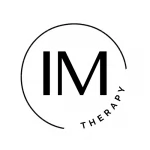
Parents often ask, “How long will my child be in speech therapy?” While there’s no concrete answer, there are factors that can contribute to a better therapy experience and an increased chance of seeing some functional progress. Naturally, since no two children are alike, each child’s therapy journey will be different–“one size fits all” does not apply. While some children may need short-term therapy, others may need therapy for much longer. In any case, here are some critical elements we think you should know about that will help your child to get the most out of therapy (please note: your child’s Speech-Language Pathologist can share more critical elements that contribute to your child getting the most out of his or her therapy experience):
- Attendance
- Appropriateness of goals/objectives
- Family involvement
- Frequency of therapy
- Participation
- Practice outside of the therapy session
- Progress tracking or monitoring of progress towards therapy goals
Attendance and participation are crucial for successful therapy. Without your child’s presence, his or her participation in therapy is not possible. Inconsistent attendance can also hinder your child’s benefit from therapy. During therapy, critical communication skills are targeted by the therapist. Typically, those receiving services are seen once or twice a week so missed time means missed opportunities for learning or mastering important communication skills. In addition to good attendance, and patient participation, parent/caregiver participation is also key. Parents and caregivers are encouraged to observe and participate in therapy sessions as often as possible, even if it’s just for the last five minutes of a therapy session. Practice at home is also critical so that your child can generalize important skills–this can help targeted skills develop more easily because practice can make better.
Another important element that contributes to getting the most out of therapy is what is being targeted. Your child’s therapist is trained to identify and address the most appropriate skills to target in the therapy setting. Goals that are too easy or too advanced for the child can impact the child’s motivation and participation so it’s important to discuss your child’s goals regularly with his or her therapist to see if they’re still a good fit. In addition, to selecting goals that fit your child’s needs the Speech-Language Pathologist will document and monitor progress or changes. In private therapy settings, re-evaluations occur every six to twelve months while they occur every three years in the public school setting. Monitoring each child’s response to therapy allows the Speech-Language Pathologist to document changes, progress, or lack thereof. We hope we have shared meaningful information for parents and caregivers to better understand how to help their child to get the most out of therapy.
Please visit imtherapy.org for more information on this and other topics and visit our online store at imthestore.com to learn about our motivational products.

